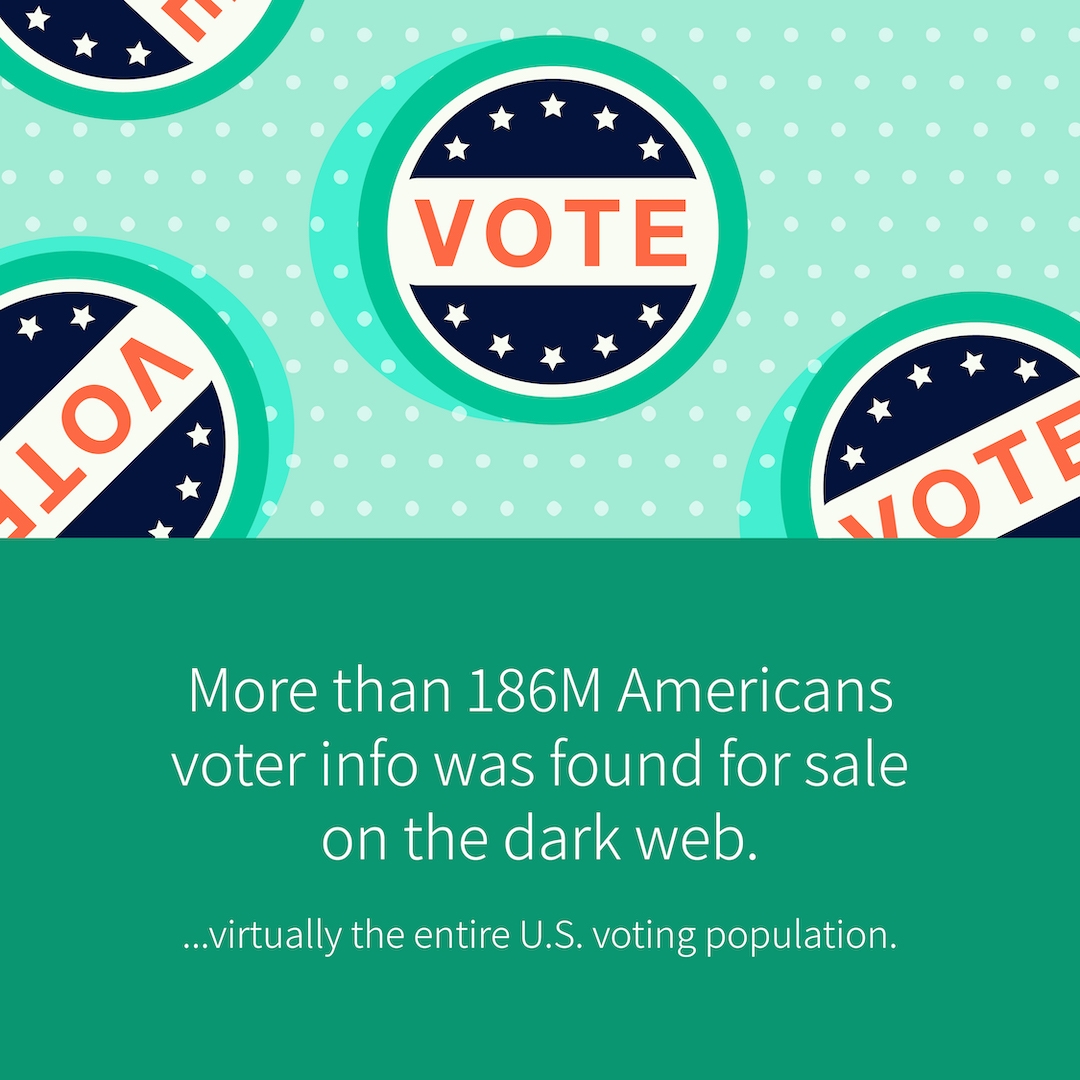Elect to Protect Your Identity: Avoiding Voter Fraud
Summary: Election season is in high gear and so are scams and fraud aimed at unsuspecting voters. Now stolen voter information is adding to the risk. Find out how to protect your privacy, your identity, and your vote!

With a pandemic, wildfires, hurricanes, and more, the year 2020 sometimes feels like a poster child for the old curse, “May you live in interesting times.” Well, the 2020 election just got a whole lot more “interesting,” too. A security research firm recently found a database for sale on the dark web with detailed information on more than 186 million voters—virtually the entire U.S. voting population. Suddenly your biggest election worry may not be whether to request a mail-in ballot or wear a mask to the polls. You also need to be on the lookout for election-related scams and frauds. Time is short, so let’s dive into the risks and how to protect your identity, your privacy, and your vote.
According to fraud expert Joseph Hoelscher, criminals will use this stolen voter information in one of three ways: trying to steal your money, trying to steal your identity, or trying to manipulate or negate your vote. According to the FBI and other law enforcement authorities, all of these types of scams are already in full swing. Common election-related financial fraud includes phone or online solicitation for political donations and websites that “spoof” the sites of legitimate candidates or political action committees (PACs) to collect money and financial information. Spoofed sites are made to look a lot like the real site, but the name may be spelled slightly differently or use “.com” instead of “.org.”
Criminals try to steal voter identities by asking for signatures on fake petitions, by conducting fake polls, or by impersonating government agencies supposedly calling to confirm a voter’s registration. For example, AP news reported this story of a grad student who was savvy enough not to click on a donation request from a PAC that turned out not to exist, avoiding a phishing scam that used the presidential election as a way to steal peoples’ personal information.
Voter manipulation and intimidation can take many forms, from political misinformation delivered via social media to misinformation about voting and even threats. This election, fraudsters and trolls have sent and posted information telling people wrong procedures for voting (including telling people they can vote via social media), misinformation about polling places, and advising citizens to vote twice to ensure that their ballots are counted. (For the record, voting twice is classed as a felony in 28 states.) Recently, scammers sent email claiming to be from a militia group and threatening voters if they voted for the “wrong” candidate. The militia group denied sending the emails and, fortunately, most voters realized it was a scam.
The week before the election will be a time of heightened risk, as fraudsters, trolls, and scammers try to take advantage of election excitement and stress.
Here’s advice from the FBI and other experts on how to stay safe:
- Know when, where, and how you will vote. Rely on election information only from trustworthy sources such as your state elections board.
- If you get an email about donations, polls, or voting information, double-check the web and email addresses to make sure they're not spoofs of legitimate sources.
- Don't open unknown emails or attachments, and avoid clicking on questionable files or links. (And, just to be safe, regularly update your anti-malware and anti-virus software, along with your operating systems.)
- Never give personal or financial information over the phone. If you want to donate, do it on the campaign or organization’s website. If a caller tries to pressure you into donating or taking a poll, hang up on them.
- If you hear reports about changes in the voting process or election irregularities, be sure they’re from a credible source such as a trusted media organization or state and local election officials.
- Report any potential election crimes, such as false information about where to vote, to the FBI.
Finally, and most importantly, keep a level head. Think about where information is coming from and whether the source is credible. If you see something on social media that looks sensationalistic or scary, think about who’s sharing it and what their intent might be before you share it. If you see something suspicious report it.
As digital security expert Sam Small recently pointed out, “Psychologically, these scams play to our desire to do something—to get involved, to donate, to take action. Give them something to work with and they’ll find a way to make a dollar.” It’s great to be passionate about your politics but stay smart. It will protect you from bad actors, and it can also keep you from becoming an unwitting accomplice to their unpatriotic crimes.
About IDX
We're your proven partner in digital privacy protection with our evolving suite of privacy and identity products.




